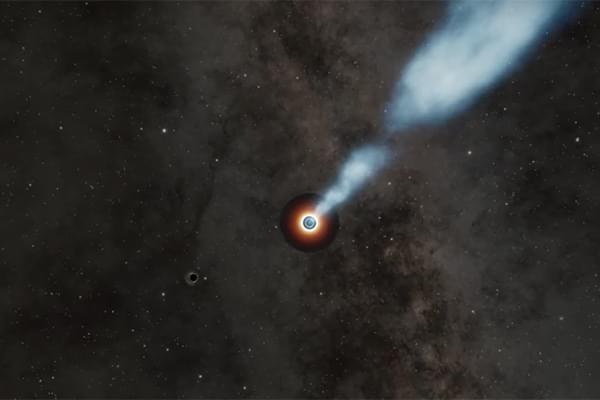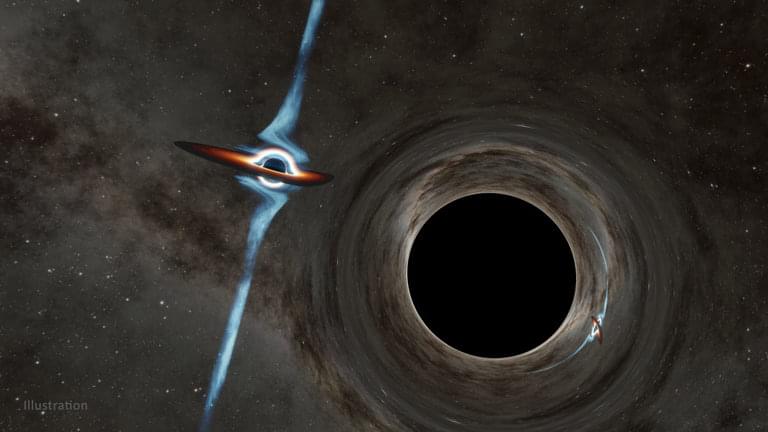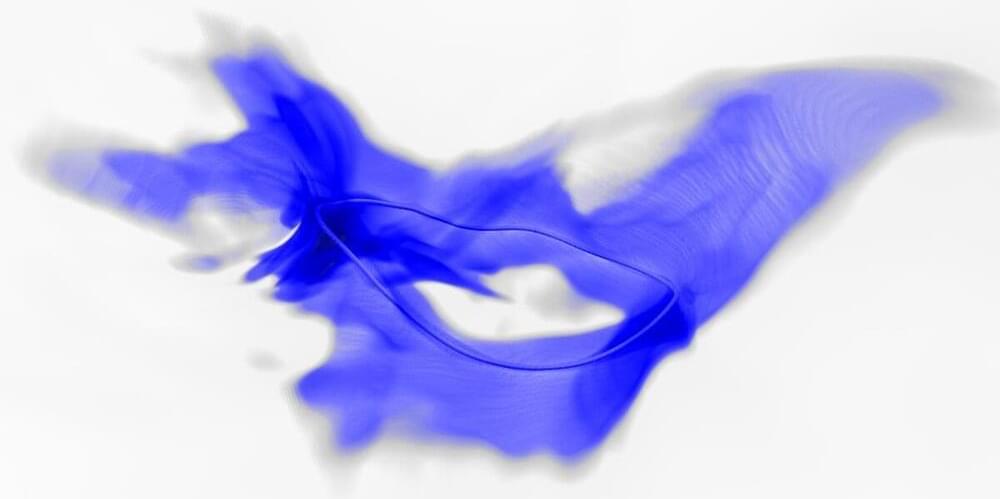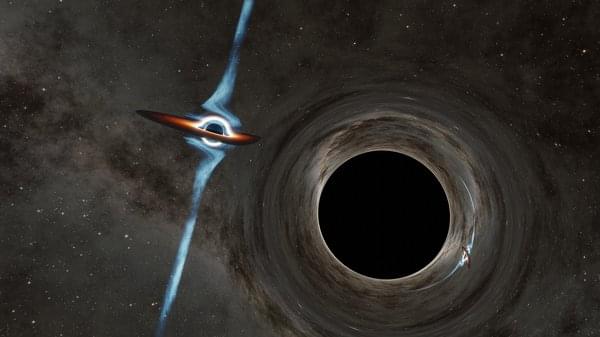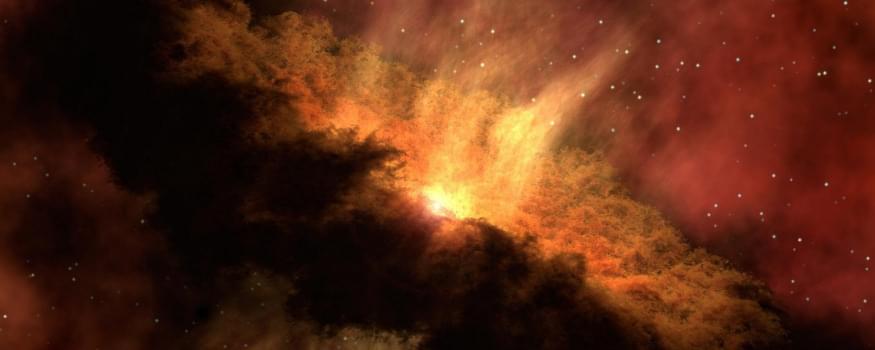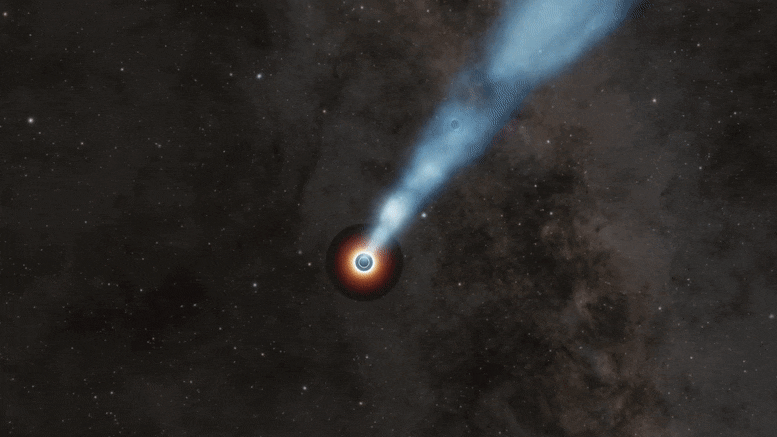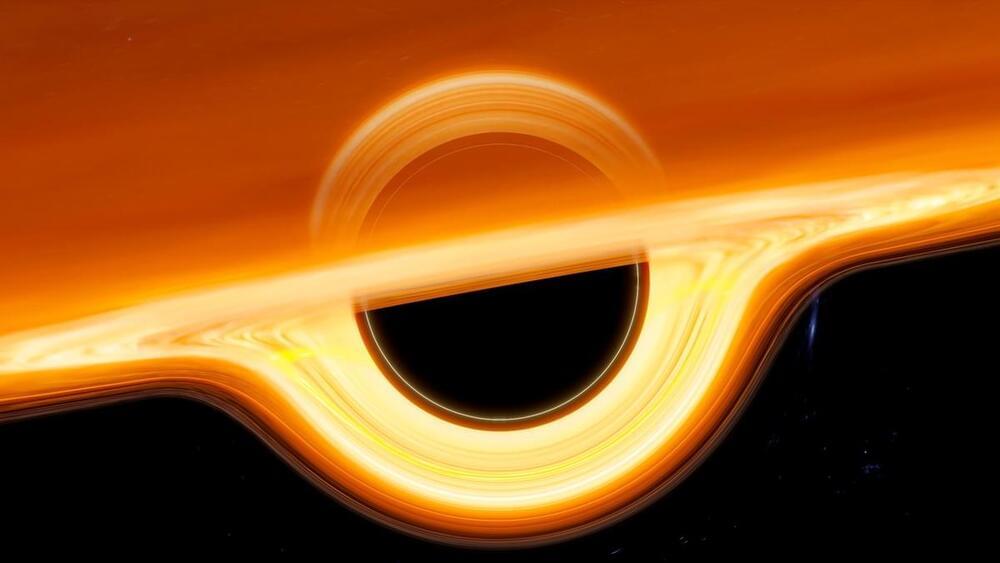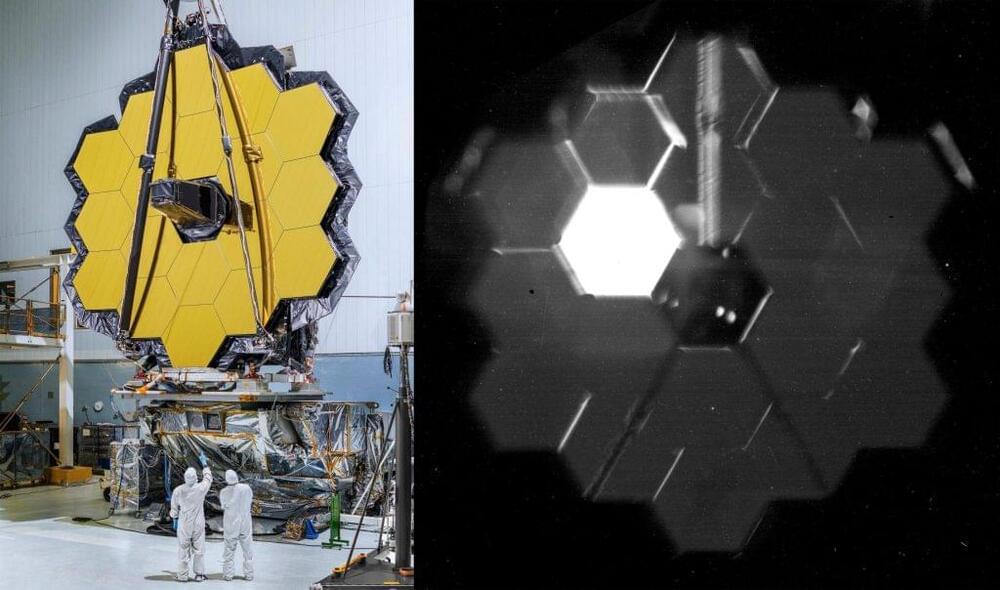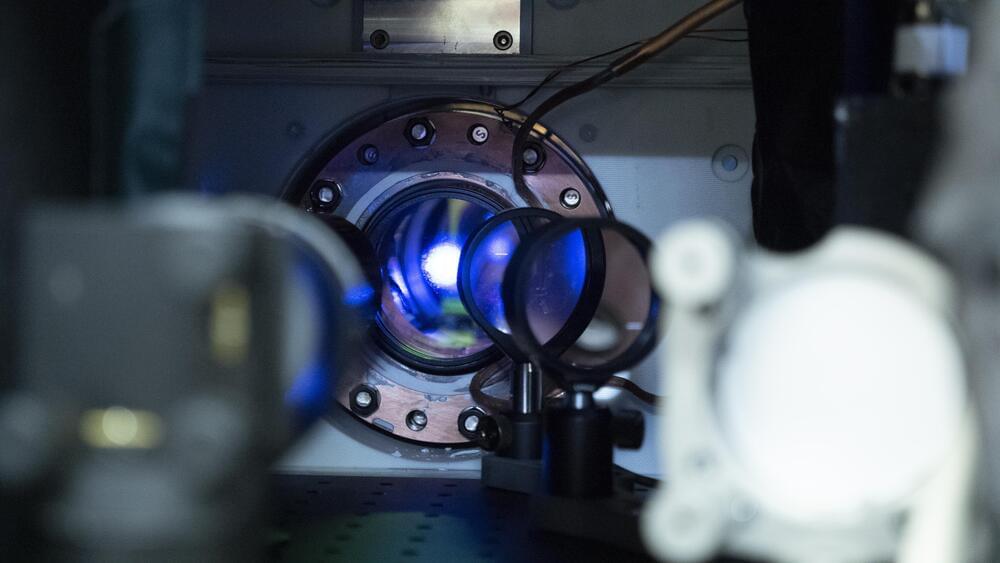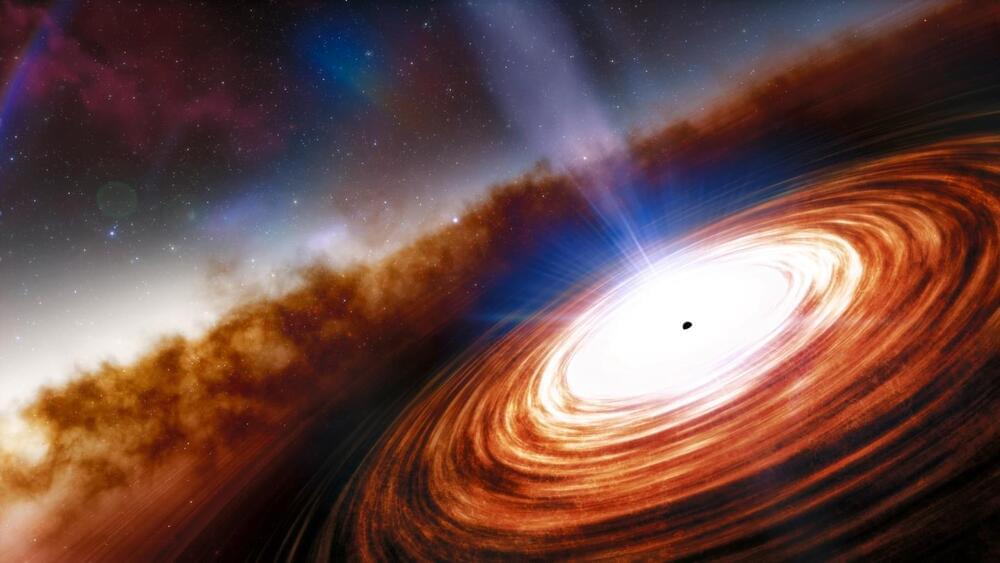Astronomers have discovered a pair of supermassive black holes that whirl around each other every two years.
A team of astronomers has caught two supermassive black holes in the process of merging. It’s only the second time we’ve observed such a close cosmic tango and this pair are even more tightly entwined than the first duo, offering unique insights into how such mergers unfold.
The black holes in question sit some 9 billion light-years away in the heart of a distant galaxy. As one of them gorges on surrounding material, it creates a radio jet that just so happens to be pointing directly at Earth. Such objects, which we call blazars, are volatile, typically flaring and dimming randomly.
